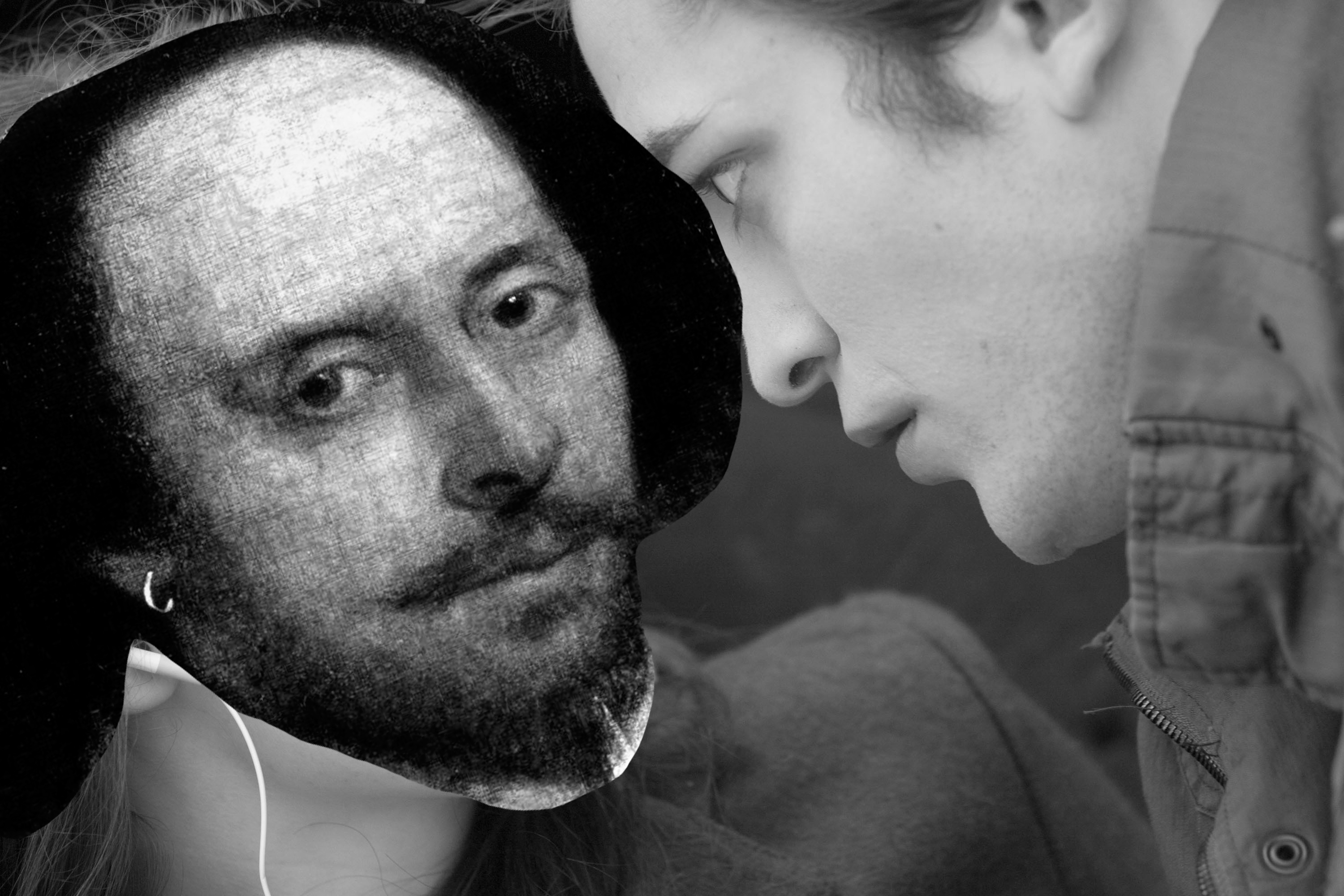Welcome to the thunderdome: Twilight and Shakespeare

Think of someone saying this: “But O, how bitter a thing it is to look into happiness through another man’s eyes.”
Now think of someone saying this: “Don’t be offended, but you seem to be one of those people who just attract accidents like a magnet. So…try not to fall into the ocean or get run over or anything, all right?”
Who wrote the first quote? Shakespeare, of course—his stilted language could be recognized anywhere.
Now, who wrote the second quote? Stephanie Meyer, of course, because who hasn’t learned of Edward Cullen’s penchant for romanticism and mixing metaphors by now (seriously, Eddie, magnets … ocean)?
We hear people using the former language never or almost never, unless you happen to be in a Shakespearean theater company.
The latter language, however, is stuff that we hear every day. It’s all around us; we don’t need the help of a guide or a lecture to help us, as we do to understand exactly what old Bill said when he was writing in his now-ancient dialect.
Why, then, do we read Shakespeare in school?
What possible use could we have of his admittedly admirable writing when we could be studying things that are both relevant and in a form that is easy to understand, like Twilight or Harry Potter or whatever?
There are two possible reasons why you would continue Shakespeare: either you’re someone who admires pure artistic form for the sake of art, even when it is written in a way that most people can’t read without some form of help, or you are elitist.
And there’s a strong possibility that you might be both.
I know I’ve been heavy on the questions, but bear with me. What percentage of American adults last year read a fiction book, one book, one single book, for pleasure? It’s 47 percent.
Considering that Twilight has been on the bestseller lists for just about ever and old William ain’t exactly lighting up the charts, then I would wager that a majority of American adults are probably reading something closer to Meyer than they are to Shakespeare. And that’s important.
Part of the problem with literature as it is currently studied academically is that it is so technically hard to read, even for college students who score higher than average on literacy tests.
Just think about it. I’m sure you don’t have to think too long to recollect something that you dreaded reading for class.
If we as college students who pay good money for school and who are under the assumption that we should work hard at this to become more marketable in the future to employers can’t be bothered to read a technical work of literature, what hope do we really have in improving the literacy and reading rates of American adults who are not in college?
So, I propose a change: out with the old and in with the new. If we really want Shakespeare to be more widely read and understood, we should trick people with Twilight instruction and move them on to something more advanced later.
If we really want to improve literacy, let’s not be elitists. Let’s be something better.

